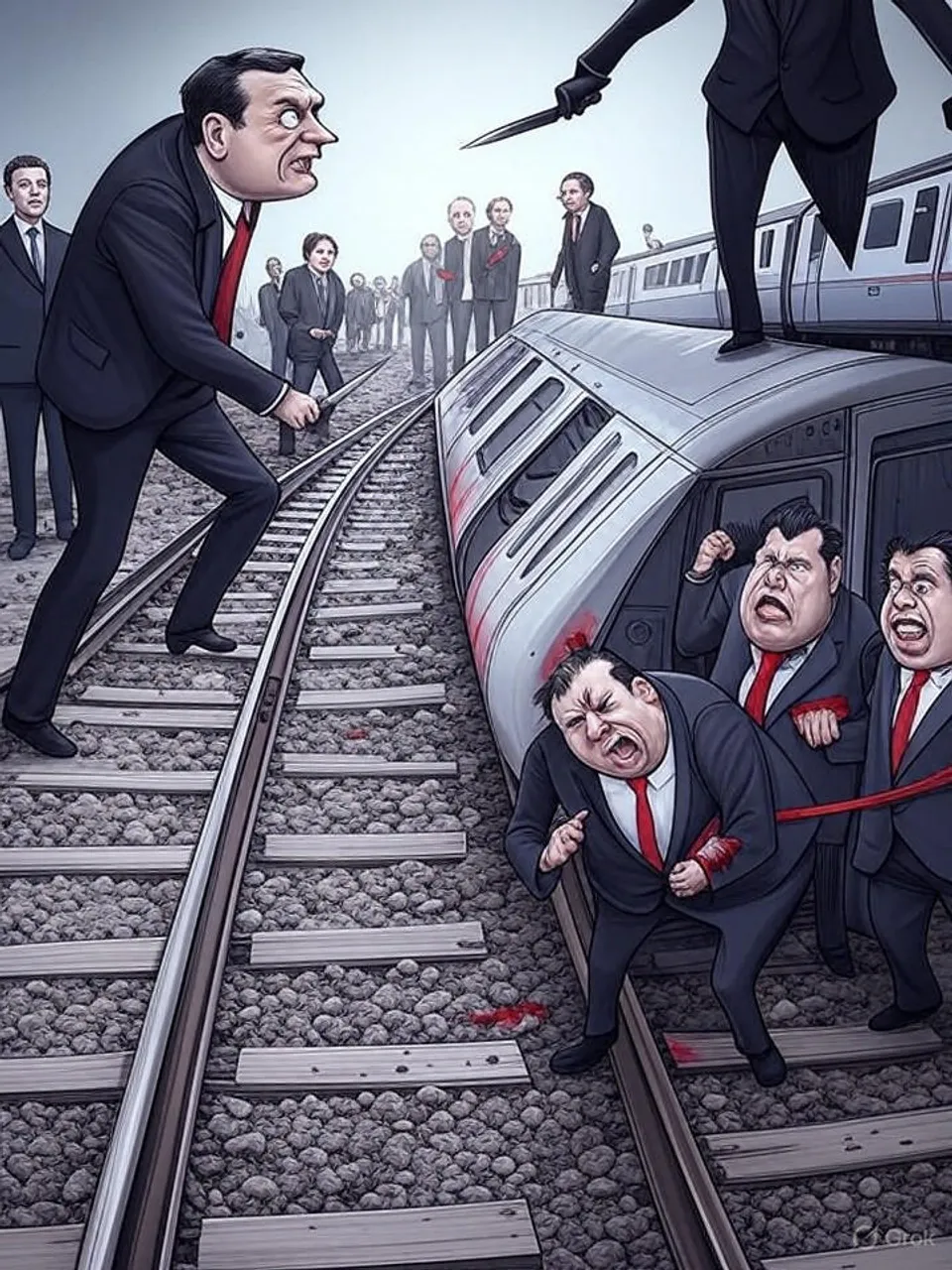Nine Lives Halted on a Single Rail Line

Stabbings on a Doncaster-to-London train expose fraying public safety amid rising knife violence
A mass stabbing on a British train injures nine severely, highlighting systemic failures in policing and transport security that turn daily commutes into high-risk ventures across governments.
Commentary Based On
The Guardian
Nine people suffering life-threatening injuries after train stabbing in Cambridgeshire, police say
Nine Lives Halted on a Single Rail Line
A train from Doncaster to London King’s Cross became a slaughterhouse on Saturday evening, leaving nine passengers with life-threatening stab wounds. Officials label it an isolated attack, yet the deployment of the “Plato” code—reserved for marauding terror threats—signals deeper institutional reflexes to mass violence. This gap between routine assurances and emergency protocols exposes how everyday travel now carries lethal risks in Britain.
The incident unfolded shortly after the 6:25pm service departed Peterborough. Witnesses described passengers sprinting through carriages, bloodied and screaming warnings of a knife-wielding assailant. One man, drenched in blood, collapsed on the floor before medics reached him, while armed police later tasered a suspect on the platform at Huntingdon station.
British Transport Police arrested two men on site. Counter-terrorism units assisted the probe, though authorities quickly downplayed any organized motive. Chief Superintendent Chris Casey emphasized urgent inquiries without speculation, a standard line that delays public clarity on threats.
Cambridgeshire Constabulary’s armed response halted the train at 7:39pm. The East of England Ambulance Service mobilized a major operation, transporting multiple patients to hospitals. National Rail closed Huntingdon station, blocking all lines and projecting disruptions until Monday—a direct hit to the east coast mainline’s reliability.
Prime Minister Keir Starmer called the event “deeply concerning” and thanked emergency services. Home Secretary Shabana Mahmood urged against speculation, while Defence Secretary John Healey assured the public of an isolated nature, advising normal life to resume. These statements follow a familiar script, prioritizing calm over dissection of recurring violence.
The MP for Huntingdon, Ben Obese-Jecty, praised the response’s scale—unprecedented in his experience. Shadow Home Secretary Chris Philp termed it a “brutal mass attack” and demanded updates. Yet such bipartisan reactions sidestep the pattern: knife incidents on UK transport have risen 20% since 2019, per Office for National Statistics data, turning commutes into gambles.
Public transport once symbolized Britain’s connectivity, with rail networks spanning 10,000 miles by the mid-20th century. Today, underinvestment leaves services strained, with LNER advising passengers to “Do Not Travel” amid the chaos. This stabbing joins a tally of 50,000 recorded knife crimes in England and Wales last year, many unresolved due to court backlogs exceeding 60,000 cases.
Policing resources stretch thin across the board. British Transport Police, tasked with 2,500 miles of rail, fields only 3,000 officers for a system carrying 1.7 billion passengers annually. The initial terror alert here reflects not conspiracy but preparedness for the normalized: attacks like the 2017 Parsons Green bombing or 2023 Nottingham stabbings, where isolation proved no shield.
Institutional failures compound the peril. Knife possession convictions fell 15% from 2010 to 2022, despite tougher sentencing laws under both Tory and Labour governments. Enforcement lags because stop-and-search rates hover at historic lows, down 50% since 2011 peaks, amid concerns over racial profiling—valid, yet leaving blades unchecked in public spaces.
Witness accounts paint raw vulnerability: up to 12 potentially injured, people fleeing in panic. One observer saw six to eight wounded, underscoring the attack’s frenzy on a crowded service. Such scenes erode trust in basic safety nets, with 40% of Britons now avoiding public transport after dark, according to recent Transport Focus surveys.
The economic toll mounts quietly. Rail disruptions cost the network £1.5 billion yearly in delays alone, per Network Rail figures. For victims, life-altering injuries demand NHS resources already at breaking point, with A&E waits averaging 13 hours. Ordinary citizens bear these burdens while perpetrators navigate a justice system where 30% of violent offenders reoffend within a year.
This incident reveals a transport system weaponized against its users. Governments pledge safer streets—Labour’s manifesto promised 13,000 more neighbourhood police—yet delivery falters, with officer numbers static at 140,000 since 2010. Cross-party neglect perpetuates the cycle: promises yield to budget cuts, leaving rails as conduits for unchecked aggression.
Britain’s decline manifests in these confined horrors, where a routine journey ends in blood. Public safety unravels not from grand conspiracies but from sustained underfunding and evasion of root causes like youth disenfranchisement and border laxity on contraband. Citizens navigate a nation where isolation offers no protection, and institutional platitudes fill the void left by action.
Commentary based on Nine people suffering life-threatening injuries after train stabbing in Cambridgeshire, police say by Daniel Lavelle on The Guardian.